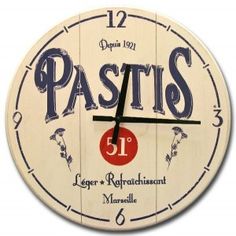I got hooked on running when I was a little girl. I was of average height, skinny with long feet and I could run for kilometers. Joining a club was financially out of the question, so I did laps of the block after school. It was a big block and I ran on the footpath, which went past the primary school and down a tiny path across a low-lying bridge. I hated that section as it was isolated and I had visions of being ambushed or confronted by one of the three billy goats gruff. It made me work hard to get up the hill on the other side and as I did ten or so blocks several times a week it kept me very fit.
A friend’s mother had South African origins and had been a good enough hurdler to qualify for the Commonwealth Games. She took my sisters and I under her wing and encouraged us to train for fun runs on the weekends. She would set us time and distance objectives for when we were running at home during the week and when we had sleepovers at her place we would set off early in the morning when it was still quiet and cool and run in the National Parks. After we had finished our long training run she and her husband would design obstacle courses for us, under and over logs, around bushes, through play equipment, if there was any, and time us to see who was the quickest. We would go home exhausted and happy. In fact I would count these mornings amongst my most treasured childhood memories.
I wanted to pass this love of sport on to my children and so from when they were very young we would avoid the car and walk as often as possible. My first child had to give up her pram for the second and then the second refused to stay in it as soon as she was capable of walking. So, we were off to a good start. Little Athletics in Australia then really made the difference. Every Saturday morning during the summer season the children would head up to the outdoor running track and in the winter season to a designated cross-country venue. There, they made great friendships and learnt about coping with losing and winning, being part of a team and trying to beat their personal best.
I looked around for an athletics club for the children when we arrived in France. Due to the approaching winter the training sessions were initially all indoors. They were geared both to fitness and learning about the different track and field events, but the one thing that was missing was the competition. By chance I saw an advertisement for a weekend cross-country run half way between our house and Annecy and made enquiries at the tourist office. That was two years ago and yesterday marked our third participation in the same event. Unlike the first year when we arrived and understood nothing about where it was to be held, how the children were to collect their competitors' bibs and where they were to start from and run to, yesterday we felt like old hands. For a start we weren’t a lonely group of foreigners trying hard not to raise our voices with each other as the stress of working things out was working us up. We knew people and we knew what to do.

As a child and young adult my different sports had me sliding around in mud on the hockey field, playing on rain-soaked fields that made it difficult to even see the hockey ball and toasting on the tennis court in the reflected burning rays of hot summer days. But, I never had to tackle snow and temperatures below zero like my children have now had to do here. In these conditions warming up and keeping warm before the start of a race is difficult but essential and beanies, gloves and long-sleeved tops and bottoms are commonplace before and during a race. We had also never come across the French habit of restraining the youngest runners behind a rope for the first couple of hundred metres of their already very short seven-hundred metre race. If it wasn’t so dangerous it would have been funny. In attempting to make things safer the children got more agitated, pushed more, fell more and were then stomped over whilst the adult runners, holding the rope and moving forward at a snail’s pace at the front, continued on obliviously.
None of this mattered by the time that the hundreds of children had been cattle-herded through the finishing gates to get their prizes; A medal of course, for participation but also a goody bag of odd not-necessarily-sports-related articles. A friend who came second in the veterans category found a wood-turned bowl and a multi-tiered letter and bill stacker in her prize bag to take home! My children were more fortunate with trendy white woollen beanies or black gloves to choose from.
We know now to expect organisational differences but one thing that we haven’t had to adjust to and that doesn’t change from one side of the world to the other is the euphoria of putting yourself to the test and the sense of accomplishment that comes from participating in, and finishing a race. Three mud-spattered, cold, tired but happy children hopped in the car yesterday to head home. I recognised the feeling.









